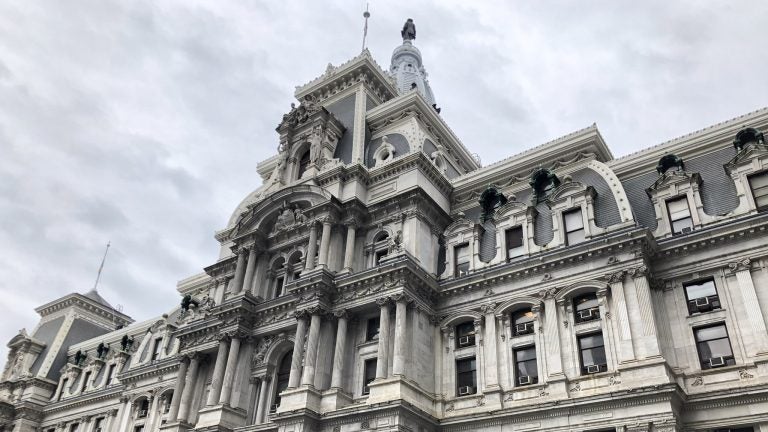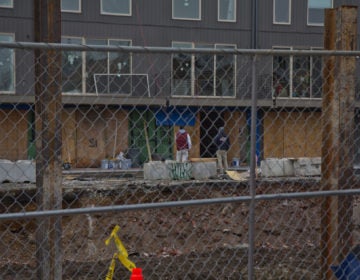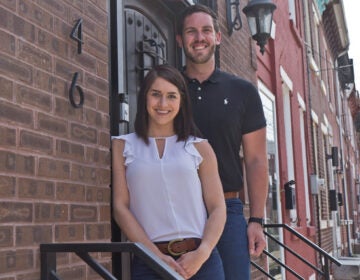City Council caves to mayor’s threat, agrees to push back abatement reform
City Council passed the amended bill, which pushes back implementation of the abatement reform to Dec. 31, 2020.

City Hall in Philadelphia (Danya Henninger/Billy Penn)
Updated 1:51 p.m.
City Council will push back the start date of changes to the city’s 10-year tax abatement, capitulating to a demand from Mayor Jim Kenney.
City Council President Darrell Clarke responded quickly to the mayor’s threat to veto the abatement reform bill if the date wasn’t moved back.
“In the spirit of compromise…council stands ready to work with you on this request,” Clarke wrote in a letter dated Dec. 5.. “Council will offer an amendment. today…with an implementation date of December 31, 2020.”
Council then voted to amend the abatement bill with the new date with only one councilperson, Helen Gym, voting against the development-friendly change.
The move will appease real estate developers and others in the industry who have said the changes were too abrupt while angering reformers who have been pushing for even deeper reforms.
Kenney threatened a pocket veto of Council’s reform of the 10-year property tax abatement if the implementation date wasn’t pushed back until at least the end of 2020.
“I look forward to signing this bill if it is amended with that later implementation date,” the letter reads. “Please know that if Council were to pass this bill as currently proposed I will not sign it, and it will not become law.”
The Council President noted in his letter that the Kenney administration had already backed off a request for an even later implementation date.
The mayor’s threat was unusual because the former Councilperson usually tries to keep conflict with Council quiet. He has never vetoed a City Council bill, in stark contrast to his predecessor, who clashed with Council openly and frequently.
Usually, if the mayor does not sign a piece of legislation, it will eventually still become law without his signature. But because this is the end of a four-year City Council term, and all legislation dies when new councilmembers are seated, any bills passed in these final two Council sessions will not become law without Kenney’s explicit approval.
The threat provoked outraged responses from some Councilmembers. Maria Quiñones-Sanchez first just shook her head when asked for her reaction. “I wonder what Councilman Kenney would say about this,” she said after a moment.
Councilmember Helen Gym tweeted an aggressive series of statements denouncing the mayor’s letter.
“Council met directly with the Mayor in September to say we were going to reform the program,” wrote Gym. “DID the Mayor offer to collaborate, offer suggestions, hold forums, work with us? Answer: NO. Change won’t happen unless we make it happen. It will be telling if Mayor seeks to veto a modest phase in of the abatement for crumbling schools and out of control development.”
She threatened to vote against any amendments to the current legislation.
The reform bill would phase effectively halve the 10-year property tax abatement for new residential construction. It would phase the value of the incentive out over the decade of the incentive, so a full abatement would only be received in the first year. In year two, 90% of a property’s assessed value would be abated and by the tenth year, only 10% of the value would be abated.
Currently, the bill would go into effect in mid-2020, which critics have said would endanger projects that are currently in the pipeline and have financing that assumes the full abatement would be in place.
At a hearing on Tuesday, the Kenney administration and a variety of interest groups — from community development corporations for-profit developers — requested that the bill be amended to extend the implementation date.
The mayor spelled out his issues with the short implementation date in the letter, explaining the reason for his threat.
“These concerns come from both the anticipated negative impact on development projects currently projected to move forward this next calendar year,” the letter reads, “as well as the real practical concern that the Department of Licenses and Inspections will not be prepared for the deluge of building permit requests they will receive in the run-up to this date.”
Although a raft of amendments were proposed by industry groups, the only one that was seriously considered the delay of the implementation date. But in the end, City Council President Darrell Clarke and a majority of councilmembers decided against amending it for fear that one amendment would trigger further attempts to change the bill.
But after the hearing Tuesday, Clarke had dismissed the idea of further amendments to the bill.
“We don’t anticipate any amendments, we would actually have to suspend the rules to allow an amendment on first reading, which we don’t anticipate,” Clarke told reporters after Tuesday’s hearing.
But in his letter, Clarke spelled out why he was willing to compromise, highlighting the $275 million he says the reform would generate in immediate revenue. Over half will go to the school district.
“The time to approve abatement reform is now,” wrote Clarke.
WHYY is your source for fact-based, in-depth journalism and information. As a nonprofit organization, we rely on financial support from readers like you. Please give today.







